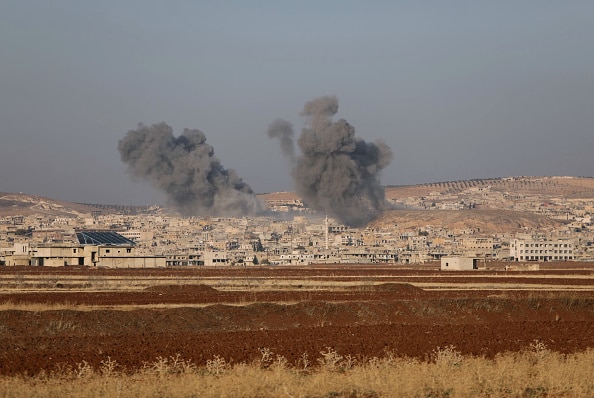
After a years-long stalemate in the Syrian Civil War, rebel groups, led primarily by the Islamist Hayʼat Tahrir al-Sham (HTS) group, successfully overthrew Bashar al-Assad, who has ruled Syria for the past 24 years, early Sunday morning.
The rebel forces had launched a renewed offensive on November 27, rapidly taking over the major city of Aleppo. Just days later, the HTS took Hama, a large city south of Aleppo.
Over the past weekend, Hay’at Tahrir al-Sham took Homs and just hours later entered the Syrian capital, Damascus. Assad fled the capital amid the chaos.
How did we get here?
The Syrian Civil War erupted in 2011 when mass protests erupted against Assad, who has ruled Syria since 2000. Assad’s government responded with a violent crackdown, sparking the creation of several armed rebel groups.
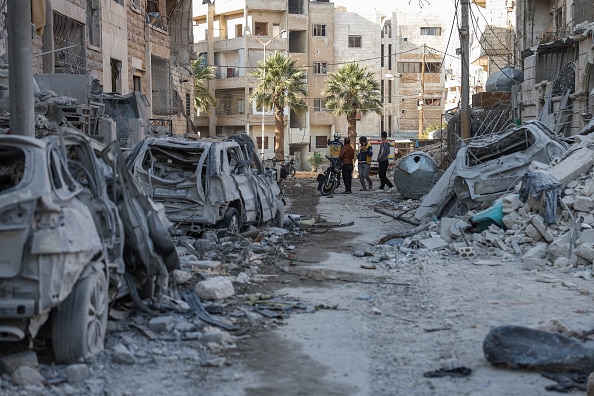
While the war beganstarted as an internal Syrian conflict, it quickly expanded into an international war as more countries got involved.
Several of the rebel factions began receiving support from Turkey, while others received support from the U.S. Foreign fighters from around the world also came to join the rebel groups.
Meanwhile, Assad received backing from Russia and Iran, who now have major presences in Syria.
The situation was further complicated after ISIS was formed and began seizing large areas of land in Syria and Iraq in 2014. This drew even more foreign involvement as the U.S. formed a coalition with other countries and with several rebel groups to fight the terrorist group ISIS.
In 2020, the fighting in the civil war largely subsided after a ceasefire was reached in northwest Syria, although there were still clashes between the various sides. That relative calm continued until two weeks ago, when Hay’at Tahrir al-Sham launched their offensive on Aleppo.
Did the fighting renew because of Israel?
Assad and his allies have blamed Israel and the U.S. for the renewed fighting.
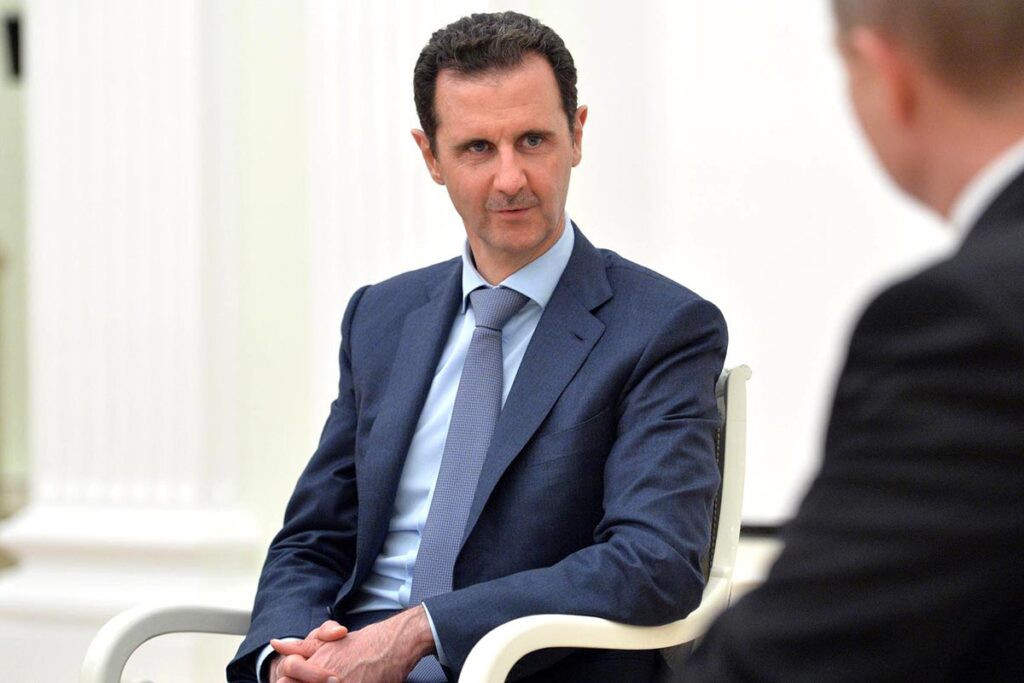
While Israel and the U.S. don’t directly support either of the two major rebel groups currently advancing in Syria, the war in Israel may have contributed to the decision by the rebels to launch their offensive now.
Iran has been central to keeping the Assad regime in power, but it has devoted most of its resources to attacking Israel over the past year.
Hezbollah especially was a major player in the Syrian Civil War on Assad’s side, but after a year of war with Israel, during which it lost most of its senior leadership and a significant chunk of its weapons and manpower, it can no longer support Assad like it used to.
Meanwhile, the president’s other major ally, Russia, has its own problems too.
Russia invaded Ukraine in 2022 and has been bogged down in that war since, making little progress and taking heavy losses for months. In recent months, Ukraine recently launched a retaliatory offensive into Russian territory, further diverting Russia’s resources.
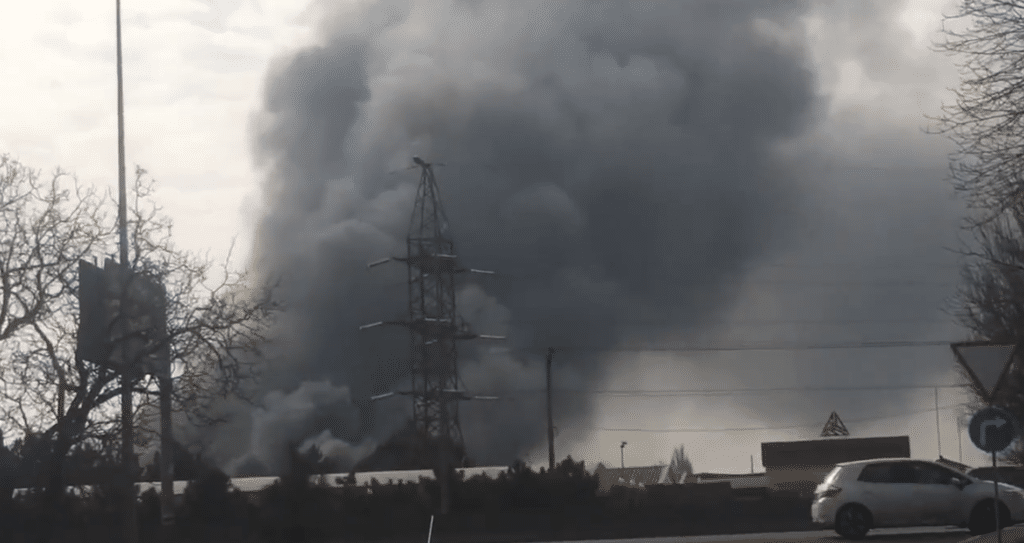
With both of Assad’s main allies busy, the rebels likely saw an opportunity to strike.
Hadi al-Bahra, the head of the National Coalition of Syrian Revolution and Opposition Forces —- an internationally recognized opposition group based outside of Syria —- told Reuters that the rebels were able to seize Aleppo because Hezbollah and other Iran-backed groups were busy attacking Israel.
HTS is not affiliated with the National Coalition of Syrian Revolution and Opposition Forces.
While hundreds of Iran-backed militants from Iraq have crossed into Syria to help Assad since the renewed fighting erupted, Hezbollah hasn’t done the same.
According to Reuters, the terrorist group was not asked to intervene in the renewed fighting and was not ready to send forces in light of the war that just ended in Lebanon.
For now, Israel and most Western countries are trying to stay out of the conflict.
Who are the different factions fighting against Assad?
There are several different factions fighting against the Assad regime. Each one has its own interests and often those interests clash.
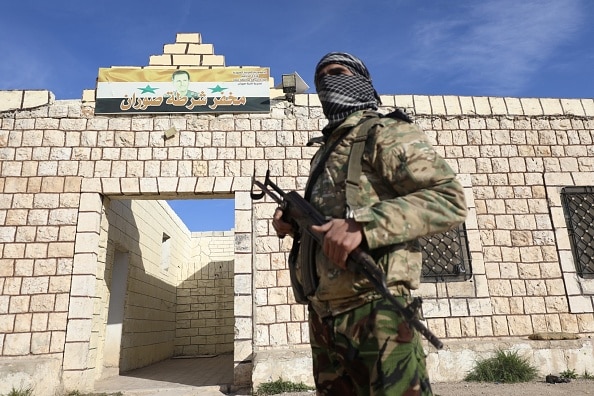
Hayʼat Tahrir al-Sham
Hayʼat Tahrir al-Sham (HTS) has been at the center of the new offensive against the Assad regime.
The group’s leader, Abu Mohammed al-Julani, once served as the head of Al-Qaeda’s branch in Syria, known as the al-Nusra Front.
Julani’s family is actually from the Golan Heights (his last name is a reference to the area in Arabic), but they were displaced in the Six-Day War.
The commander fought for Al-Qaeda in Iraq in the early 2000s before being imprisoned by American forces for over five years. In 2011, he moved to Syria and established the al-Nusra Front, allying it with ISIS until 2013. The alliance fell apart after Julani refused demands by ISIS to dissolve his group and become part of ISIS. He instead chose to pledge allegiance to al-Qaeda’s leader at the time.
While most Islamist groups are focused on global jihad, which aims to tear down currently existing state borders and establish one united Islamic government over the entire Muslim world, Julani has instead focused on the interests of Syrians.
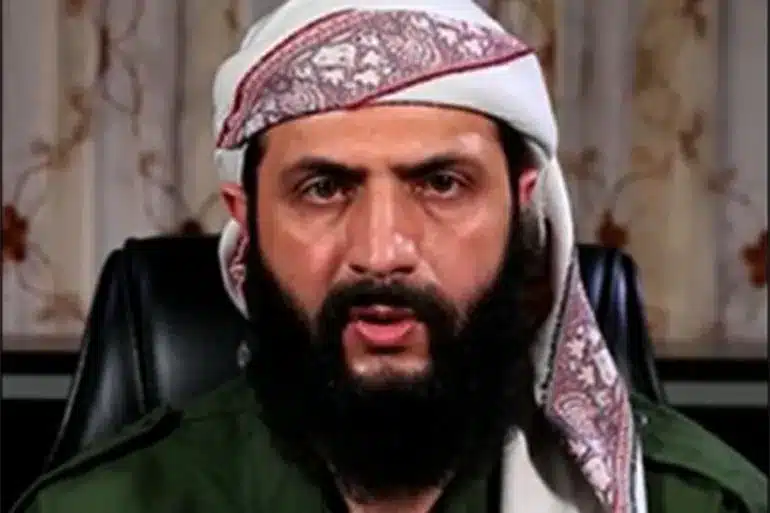
Already in 2015, Julani stressed in interviews with foreign media that his movement was not interested in targeting the West like other Islamist groups. Instead, they simply wanted to get rid of the Assad regime, Hezbollah, and ISIS.
In 2016, Julani announced that the al-Nusra Front was changing its name to Jabhat Fateh al-Sham and would no longer be linked to any other group. A year later, that group was also dissolved and became part of Hayʼat Tahrir al-Sham.
Julani and HTS are still designated as terrorist entities by the U.S.
The group has tried to reform its image in recent years in an attempt to get off of the terrorism list.
The Syrian Salvation Government, which administers civilian matters in territory controlled by HTS, has put out several statements reassuring minority groups that their rights would be protected.
In one recent statement, the Salvation Government wrote that “Syrian Kurds have the full right to live in dignity and freedom, as do all the Syrian people. They are an integral part of the diverse Syrian identity that we all cherish. In the future Syria, we believe that diversity is our strength, not a weakness.”
Julani also stressed in a recent statement that “Islam has taught us kindness and mercy, so we must use them in their proper place. Your courage in battle does not mean cruelty and injustice towards our civilian population.”
“We do not seek revenge, but rather justice and dignity,” added Julani. “Be an example of tolerance and forgiveness, do good to the enemy’s prisoners and wounded, and beware of excessive killing, and treat them with the morals of Islam, for I hold you responsible for representing the Syrian revolution in the field, and expressing its principles and values in reality.”
Throughout the renewed offensive, the group’s leader has tried to emphasize that renewed image.
Kurds, Christians, and other minorities who were in the past treated harshly by similar groups have reported more tolerant behavior from HTS than in the past.
A Christian woman in Aleppo told the Wall Street Journal that “The day [the rebels] said they took over Aleppo, before seeing them, I felt like the Titanic was sinking. Everyone was shocked because they were treating us nicely. They look scary. They look exactly the way you imagine when someone says a terrorist: long beards and crazy hair. But they’re nice.”
Analysts are split on whether this shift is genuine or just a temporary act aimed at convincing the West and other Syrian factions to cooperate with them.
“The HTS leadership is pragmatic and utilitarian, and less ideological,” said Dareen Khalifa, a senior adviser at the International Crisis Group, to the Wall Street Journal. “Jawlani is not a cleric, he is a politician who is ready to strike deals and is very compromising on a lot of things — except fighting against the regime. Don’t underestimate this guy’s ambition.”
Fabrice Balanche, a specialist on Syria at the Lumière University of Lyon 2, argued, however, that it was doubtful that the transformation was genuine.
“Yes, Jawlani probably became more bourgeois with age, and may have renounced part of his radical ideology. But I think it’s more likely that he’s playing taqiyya — concealing his real intentions.”
George Meneshian, a Greek-Armenian political analyst who is in contact with Armenians in Aleppo, told the BBC that Christians in the city have not been harassed by HTS.
“On the first day, an HTS fighter knocked on the door of an Armenian neighbour and assured them that they would definitely not harm them,” said Meneshian. “They said they would respect them and allow them to do whatever they want, as Christians and as Armenians.”
“There are precedents for Islamist militias initially not harming anyone, but afterwards committing crimes against minorities. Hopefully this will not be the case,” he added.
Syrian National Army
The Syrian National Army (SNA) is a coalition of militias backed by Turkey.
Turkey uses the SNA to target Kurdish groups and militias in northern Syria. While the HTS has focused on targeting the Assad regime in its new offensive, the SNA has launched a renewed attack on Kurdish groups.
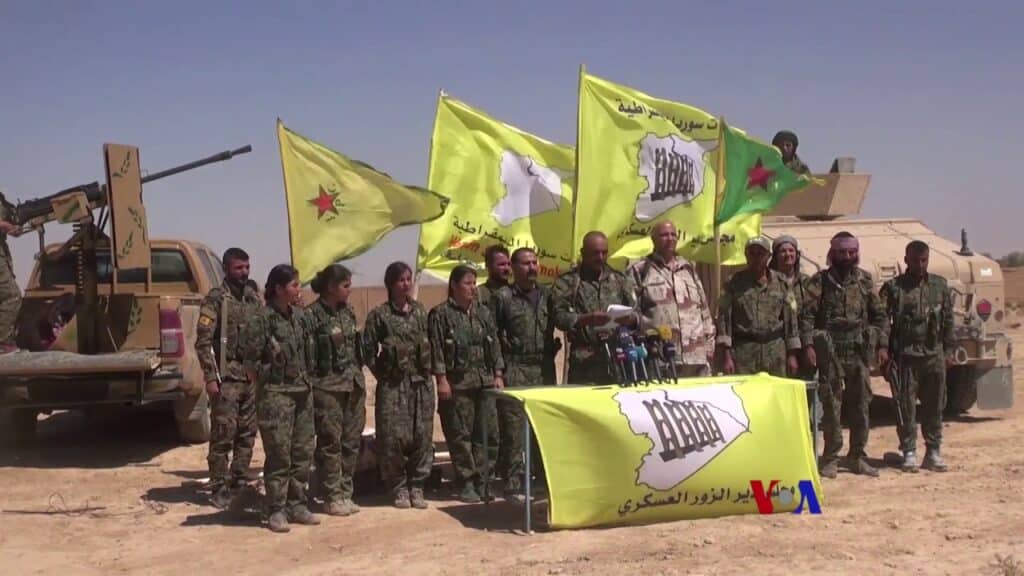
The factions within the SNA don’t always agree on everything and there is sometimes violent infighting.
The SNA and HTS are also often at odds. While both fought together to take Aleppo, they have very different ideas about what the offensive should focus on and what the future of Syria should be.
The SNA wants to focus on attacking the Kurds and has launched offensives towards more Kurdish areas in eastern Syria. Meanwhile, the HTS wants to focus on targeting the Assad regime and has issued statements reassuring Kurds that they won’t target them.
While HTS has tried to reform its image in recent years, the SNA hasn’t made much of an effort.
The SNA has repeatedly been condemned for human rights violations against combatants and civilians, especially Kurds.
SNA fighters have been documented murdering, torturing, kidnapping, and forcibly displacing Kurds throughout the civil war.
Kurdish groups
There are several Kurdish groups operating in the civil war. The main group is the Syrian Democratic Forces (SDF), a coalition of militias that aims to create a secular, democratic, and federalized Syria.
The SDF is supported by the U.S. and has been focused on fighting ISIS, Turkey, and the SNA. The SDF holds a large swath of territory in northeastern Syria, much of it bordering Turkey.
Turkey and the Kurds have a tense history. The Kurds, an ethnic group that lives in areas from Turkey to Iran, have often fought for independence in areas where they live in Turkey and throughout the region. Turkey has responded with brutal crackdowns and military operations, targeting Kurds inside Turkey and in Syria and Iraq.
The SDF’s relationship with the Assad regime is also somewhat complicated. It largely fights against Assad, but there have been some cases where the interests of the Assad regime and at least parts of the SDF have aligned.
Amid the renewed offensive, the SDF has been confronting the SNA again, although the HTS has so far largely avoided directly confronting the SDF.
Is the renewed fighting good for Israel?
It’s unclear how the fighting will affect Israel in the long run.
The chaos in Syria could end up hurting Israel in the short term. Iran may try and use the situation to transfer weapons to Hezbollah under the guise of providing support for Assad.

With Assad now out of the picture, the effect on Israel will likely depend on who gains power in the end. The multitude of factions may not be willing to work together, so there may be further conflict between the factions even now that the Assad regime has fallen.
The HTS hasn’t really said much about its feelings toward Israel. Julani does have some tense family history with Israel and jihadist groups aren’t exactly famous for their warm feelings toward the Jewish state.
Syria’s dispute with Israel over the Golan Heights, which were captured by Israel in the Six-Day War in 1967, are also likely to factor into the future of relations with the HTS.
On the other hand, the HTS has become more pragmatic and it’s unlikely they’ll be very interested in expending resources on Israel right after a massive civil war. The HTS and Israel also share a common enemy, Iran.
Suhail Mohammed Hamoud, a Syrian rebel known for his skill with anti-tank missiles, told Israel’s KAN news two weeks ago that Israel “shouldn’t worry about Iran and Hezbollah.”
“We’re dealing with them,” said Hamoud. “You need to worry about Bashar al-Assad, Iran, and Hezbollah (not about us). You know the behavior of Iran and Bashar al-Assad, who acts with a harsher hand than the Islamists.”
The SDF doesn’t appear to have any interest in confronting Israel, as their main interests are focused on eastern Syria, far from the Israeli-Syrian border. Kurdish rebels reportedly held some initial talks with Israeli officials in recent days.
Rebels from the Free Syrian Army and Druze protesters also became active over the weekend, bringing much of southern Syria under their control. They will likely have a large say in the future of the country as well and since they now control the Syrian-Israeli border, their position toward Israel is likely to have a significant effect on how the fall of the Assad regime affects the Jewish state.
The SNA is allied with Turkey. Due to the increasingly hostile stance Turkish President Recep Tayyip Erdoğan has taken against Israel over the past year, the SNA could push for action against Israel. However, the SNA holds a relatively small amount of territory and the areas they do hold are in northern Syria, far from the Syrian-Israeli border.
Some Syrian rebels allied with Turkey have been vocal against Israel.
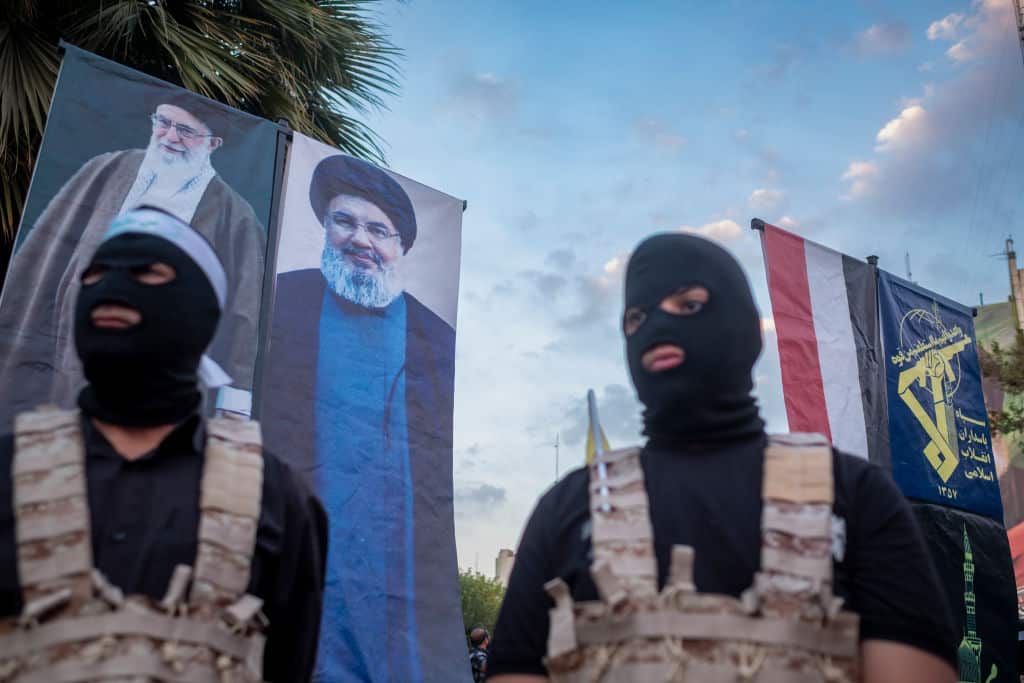
In October, al-Bahra criticized Assad for allowing Israel to strike in Syria and accused Israel of taking advantage of the chaos in the region to attack Syria.
In the meantime, Israel is keeping a close eye on the situation.
IDF Spokesperson Daniel Hagari recently warned Iran against trying to use the chaos to smuggle weapons to Hezbollah, stressing that Israel would strike if it saw this happening.
Israel is also reportedly considering striking chemical weapons facilities in order to prevent the rebels from gaining access to those types of weapons.
On Thursday evening, the Israeli government held an urgent meeting to discuss the developments in Syria. Several additional meetings were held over the weekend. Israeli officials expressed concerns that the Assad regime could fall more quickly than expected, raising the risks that powerful weapons could fall into the hands of extremists among the rebels.
On Friday, the IDF announced it was sending reinforcements to the Syrian-Israeli border in light of the fighting in Syria. On Saturday evening, the IDF clashed with militants who attacked U.N. posts near the Syrian-Israeli border.
Early Sunday morning, as the rebels declared the end of the Assad regime, the IDF entered the buffer zone along the Syrian-Israeli border in order to bolster the defense of the border.
Classes in four Druze communities in the Golan Heights were cancelled on Sunday as well and agricultural areas near the border have been declared a closed military zone.
Israel is also concerned that Iran could try and use the chaos to transfer weapons to Hezbollah through the rebel groups. While it’s unclear if the leaders of the rebels have any interest in attacking Israel any time soon, armed groups may try and attack amid the chaos.
Sarit Zehavi and Tal Beeri of the Alma Research and Education Center stressed that “Israel must balance the short-term benefits of disrupted Iranian influence with the long-term risks of extremist empowerment and regional instability. A fragmented Syria could result in advanced weaponry falling into non-state actors’ hands, necessitating robust countermeasures.”
Originally Published Dec 5, 2024 06:07PM EST
